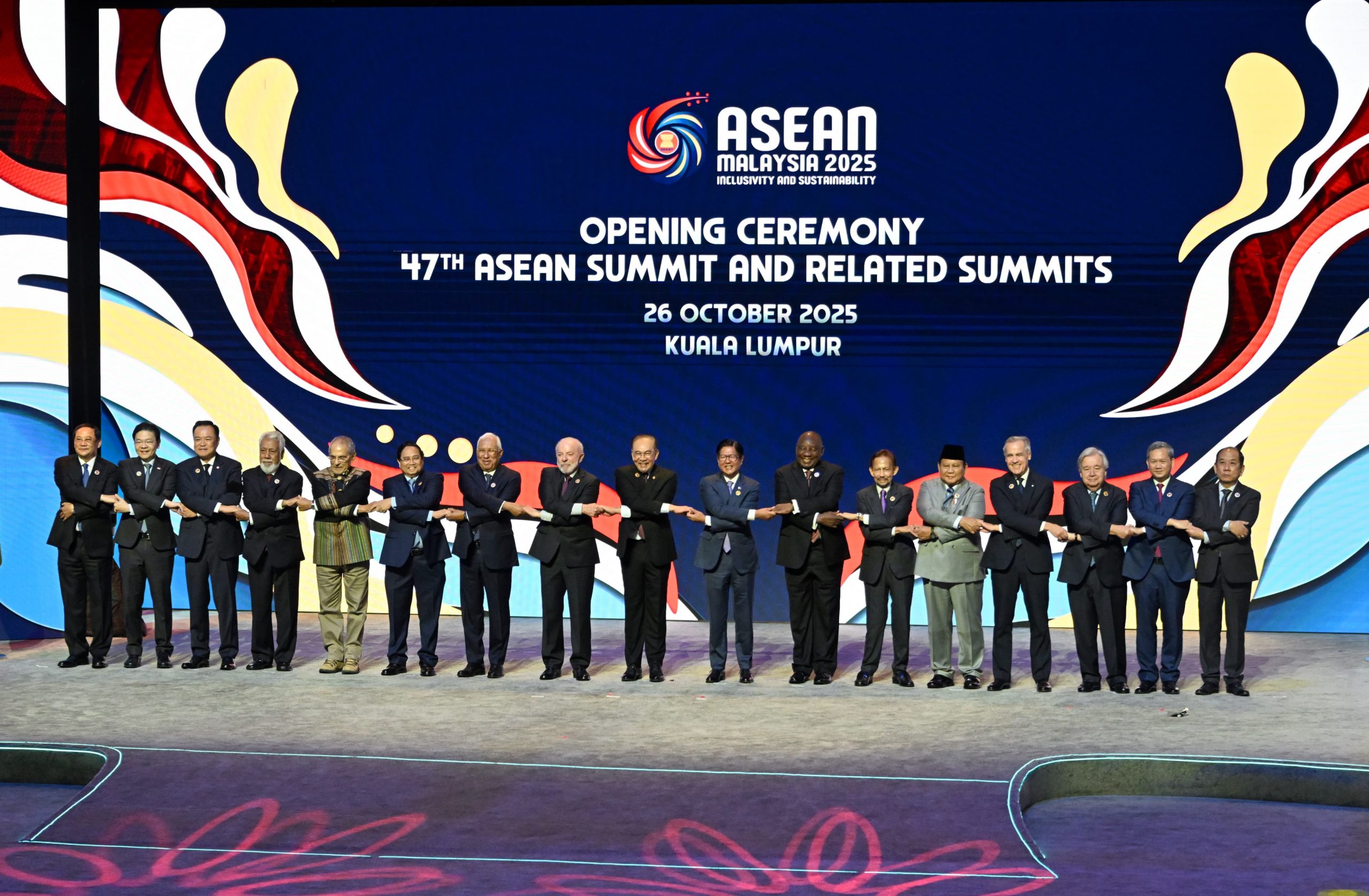From halal economy leadership to regional market access, Malaysia offers Gulf capital a trusted bridge to ASEAN growth.

Photo by Zukiman Mohamad
In a region as vast and varied as Southeast Asia, it’s tempting for investors to cast a wide net and hope for the best. But for Middle East and North Africa (MENA) investors looking eastward, the path is surprisingly focused. Malaysia consistently emerges as the trusted entry point into Southeast Asia’s complex, high-growth landscape. This isn’t by accident — it’s by design, history, and strategy.
Today, as MENA capital continues its eastward drift, bypassing saturated Western markets and navigating a fragmented Asia, Malaysia offers a rare combination: cultural familiarity, economic opportunity, and institutional reliability.
Let’s unpack why Malaysia remains the natural landing pad for Gulf capital in Southeast Asia.
If capital flows follow comfort, then Malaysia is an oasis of familiarity for MENA investors. Both regions share deep Islamic ties, not just in faith but in commerce.
Malaysia is widely regarded as a global leader in the halal economy. According to the State of the Global Islamic Economy Report 2023 (DinarStandard), Malaysia ranks first globally in halal food, Islamic finance, and Muslim-friendly travel. The numbers are compelling: Malaysia’s halal export value reached USD 10.4 billion in 2022, with continued growth forecasted to exceed USD 12 billion by 2025.
For Gulf investors, this alignment goes beyond compliance checklists. It accelerates trust. When Gulf businesses explore food security partnerships, Islamic banking products, or lifestyle sectors like halal cosmetics, Malaysia isn’t just a vendor. It’s a peer.
Moreover, Malaysia hosts the World Halal Summit annually, which sees participation from major MENA enterprises looking to explore partnerships across Southeast Asia.
Takeaway: In Malaysia, Gulf investors find not just market access, but cultural alignment that smooths deal-making and deepens long-term confidence.
Islamic finance is another pillar of Malaysia’s appeal. The country has spent decades institutionalising Shariah-compliant finance, making it an international standard-bearer.
Malaysia’s Islamic finance assets reached over USD 296 billion in 2022, according to the Islamic Financial Services Board. The ecosystem spans Islamic banks, takaful (insurance), and sukuk (Islamic bonds), making Malaysia a sophisticated environment for Gulf capital that demands Shariah alignment.
What makes this especially strategic is Malaysia’s proactivity in cross-border Islamic finance partnerships. In 2023, Malaysia and Saudi Arabia renewed bilateral commitments to expand Islamic banking collaboration, including shared fintech innovations.
Gulf family offices and sovereign wealth funds see Malaysia not just as a safe parking lot for capital, but as a launchpad for Islamic fintech pilots and green sukuk issuances that could scale regionally.
Takeaway: Malaysia offers Gulf investors a home-ground advantage in Islamic finance, marrying compliance with growth opportunity.
Beyond cultural and financial compatibility, Malaysia is an economic powerhouse in its own right. As a founding member of ASEAN and a participant in major trade blocs like the Regional Comprehensive Economic Partnership (RCEP), Malaysia provides unparalleled market access.
Through RCEP, businesses in Malaysia enjoy reduced tariffs and streamlined market entry to a bloc representing 30% of global GDP. For MENA exporters and investors, this is a multiplier effect: enter Malaysia, and you effectively gain a bridge into ASEAN’s combined economy of over 680 million people.
Additionally, Malaysia has carved out special trade relationships with the Gulf. The Malaysia-Gulf Cooperation Council (GCC) Free Trade Agreement is in ongoing negotiation, aiming to deepen economic ties across sectors like petrochemicals, manufacturing, and food processing.
Takeaway: For Gulf capital, Malaysia isn’t just a destination; it’s a springboard into the wider ASEAN market.
Stability matters. While parts of Southeast Asia still grapple with political uncertainties, Malaysia has steadily maintained institutional reliability, particularly in areas that matter to foreign investors: legal protections, contract enforcement, and transparent regulatory frameworks.
According to the World Bank’s Ease of Doing Business 2020 report, Malaysia ranked 12th globally, ahead of major economies like Australia and Canada.
Malaysia’s regulatory bodies, such as the Securities Commission Malaysia (SC) and Bank Negara Malaysia (BNM), are internationally respected for their governance standards and proactive engagement with foreign investors.
Takeaway: MENA investors value predictability. Malaysia delivers it in spades, building the institutional trust required for long-term investment horizons.
Trust isn’t built in boardrooms alone. Malaysia and MENA share robust people-to-people linkages that quietly, but powerfully, lubricate business relationships.
Thousands of Middle Eastern students have studied in Malaysian universities over the past two decades. Malaysia has also become a preferred destination for medical tourism from the Gulf, with Malaysia Healthcare Travel Council reporting a consistent rise in Gulf patient visits.
Furthermore, Malaysia actively courts MENA tourists, investing in Arabic-language services and Muslim-friendly hospitality, creating a familiarity that extends beyond commerce.
Takeaway: Personal trust accelerates professional opportunity. Malaysia leverages cultural intimacy to foster deeper MENA-SEA commercial ties.
In an age of diversification and shifting trade routes, Malaysia stands out not as a mere convenience but as a strategic partner for MENA investors navigating Southeast Asia.
Culturally aligned, financially sophisticated, regionally integrated, and politically stable — Malaysia offers a rare blend of factors that give Gulf capital both confidence and ambition. It provides MENA investors with a soft landing, yes, but more importantly, it offers a firm springboard into the rest of Southeast Asia’s dynamic markets.
For Gulf family offices, sovereign wealth funds, and next-gen entrepreneurs alike, Malaysia remains the smart starting line for a Southeast Asian growth story that is only just beginning.

StashAway’s entry into the UAE isn’t just a business expansion. It reflects a shift in how wealth is being understood in the region.

The 47th ASEAN Summit in Kuala Lumpur from 26–28 October 2025 marked a pivotal moment for Southeast Asia. With East Timor’s historic entry as ASEAN’s 11th member, an upgraded ASEAN-China Free Trade Agreement, and renewed engagement from major powers, the summit reflected both opportunity and strain. The question now is whether ASEAN’s long-standing unity can hold amid global polarisation and rising protectionism.

First Abu Dhabi Bank (FAB) is deepening its role as the financial bridge between the Gulf and Asia. At the second edition of the Middle East–Asia Summit in Singapore, FAB convened over 250 policymakers, investors, and business leaders to discuss how trade, innovation, and sustainability can shape a new era of cross-regional growth.